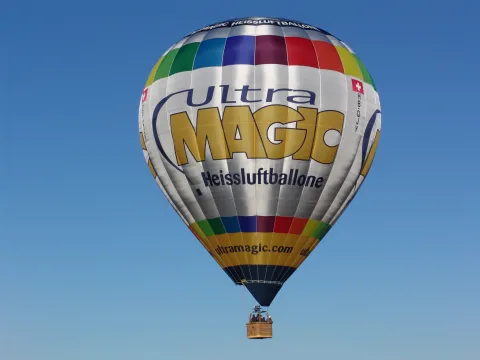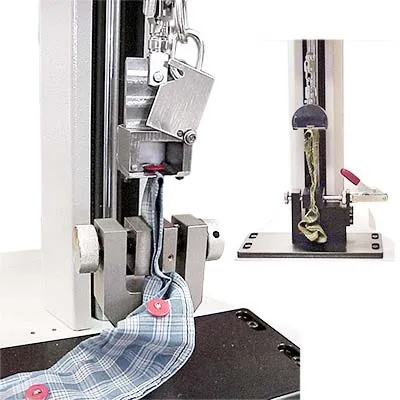
Hot air balloon cloth tensile strength and tear-resistance testing


Solution
- Motorised force testing system
- Digital force gauge
- Vice grips with wave-form jaw faces for fabric
Benefits
- Simple and reliable pull to break testing
- Fixtures specifically suited to fabric and textile gripping
- Easy to perform a full range of tests on the product components
This test system is perfectly suited to our needs, giving us the flexibility we require to perform multiple tests with the certainty of obtaining reliable, accurate results. Undertaking these quality measurements in-house means we are also saving significant costs, as we no longer require the services of external test laboratories.
Jordi Vives-Talló, Engineer
Ultra Magic
Requirement
Ultramagic is the second largest hot air balloon manufacturer in the world.
For obvious safety reasons, the material used must conform to strict standards applicable to the aeronautical industry.
This requires the company to make controlled assessments of the material used in different areas of the balloon ‘envelope‘.
Ultramagic wanted a test system to perform tensile strength tests on the balloon cloth.
The main part of the envelope is manufactured from nylon, which is coated in a sealer, such as silicone, making it impermeable to air, whereas the mouth of the balloon is manufactured using heat resistant material.
Solution
Mecmesin supplied a MultiTest 2.5-d test system, capable of measuring tensile forces up to 2500 N, an Advanced Force Gauge (AFG) and a pair of large single-action vice grips (wave form jaws).
Ultramagic needed to perform the same test for the different fabrics and coatings used to manufacture the envelope.
The supplier tests samples that are 45mm in width and 120 mm in length.
Each sample is secured within the wave form jaws before performing the tensile test at a speed of 50 mm/min.
Depending upon the material, tensile forces are expected to be within the region of 700 N-1100 N.
For optimum result accuracy, wave form jaws are used, as they are able to grip the samples securely, without pinching, and therefore weakening, the material at these points.
Ultramagic also use the system to perform a number of other tests, including:
- Testing tensile strength of balloon cloth fabric subjected to an accelerated ageing process. This is produced from the radiation of a xenon lamp, and is undertaken to predict the effect of sunlight on the fabric over time.
- Performing a tear test on balloon cloth fabric, which is undertaken on a test sample, 50 mm in width, at a speed of 50 mm/min, where forces range from 50 N to over 350 N.
- Undertaking tensile tests on seams and fasteners to establish maximum strength.
Test equipment
- MultiTest 2.5-d (replaced by MultiTest-dV with AFG or VFG gauge, or OmniTest UTMs)
- AFG (Advanced Force Gauge), or VFG (Touchscreen version)
- Pair of large single-action vice grips - wave form jaws
Tensile testers with connected digital gauges provide quick and simple force results for ultimate strength methods like tear. The capability to connect to software enables export and sharing of the results. Software-controlled UTMs add libraries of test procedures and operator-specific workspaces.













